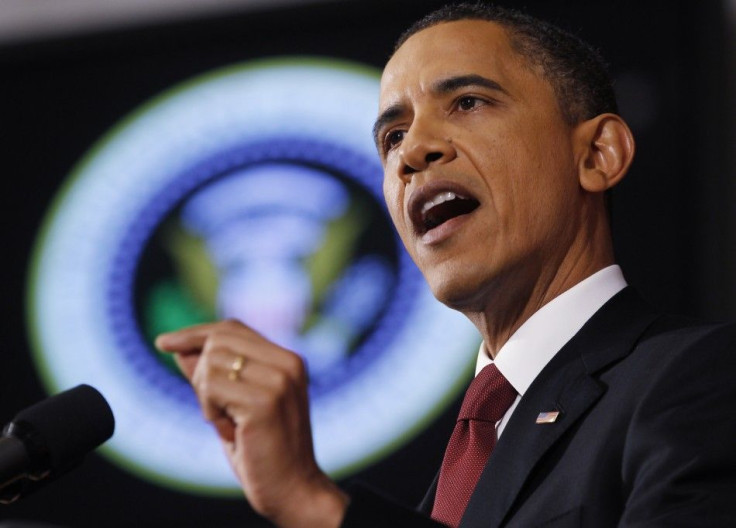Obama: Middle East Change Cannot Be Turned Back

President Barack Obama spoke to the nation on Monday about the situation in Libya, saying the NATO alliance of nation to which the United States belongs will take over command on Wednesday and adding that the wider changes arising from popular outcry in the Middle East cannot be changed back.
Going forward, the lead in enforcing the No Fly Zone and protecting civilians on the ground will transition to our allies and partners, and I am fully confident that our coalition will keep the pressure on Gaddafi's remaining forces, Obama said.
The U.S. will play a supporting role by providing assets related to intelligence, logistical support, search and rescue assistance and communications jamming.
He said the cost of U.S. operations would be reduced significantly.
He also spoke about the future of Libya.
The transition to a legitimate government that is responsive to the Libyan people will be a difficult task. And while the United States will do our part to help, it will be a task for the international community, and - more importantly - a task for the Libyan people themselves, he said.
He said the U.S. will not be able to dictate the pace and scope of change sweeping across the Middle East.
Only the people of the region can do that, he said.
Amid popular pressure, the heads of neighboring Egypt and Tunisia have stepped down or announced their exit. In Syria protests have turned violent, while growing unrest taking place in Yemen and Bahrain.
I believe that this movement of change cannot be turned back, and that we must stand alongside those who believe in the same core principles that have guided us through many storms: our opposition to violence directed against one's own citizens; our support for a set of universal rights, including the freedom for people to express themselves and choose their leaders; our support for governments that are ultimately responsive to the aspirations of the people, he said.
International Efforts
Earlier on Monday, U.K. Prime Minister David Cameron and French President Nicolas Sarkozy called on Libyans to organize a transition that will oust Gaddafi from power.
The call comes just ahead conference in London on Tuesday will include representatives from many of the same countries and organizations currently enforcing and backing a no-fly zone over Libya which has enabled rebels to begin advancing westward against forces backing Libyan leader Muammar Gaddafi.
We call on all Libyans who believe that Qadhafi is leading Libya into a disaster to take the initiative now to organize a transition process, Cameron and Sarkozy said in a joint statement on Tuesday.
More than 40 representatives from various groups with overlapping membership will attend, including NATO, the United Nations, the Arab League, the African Union and the UN's Organization of the Islamic Conference.
Mahmoud Jebrill, a Libya opposition leader will also attend, a European diplomat told Bloomberg News. The official was not authorized to publicly discuss the meeting in advance.
We do think it's very important to spell out an end-state, a vision of where this goes, said Denis McDonough, U.S. Deputy National Security Advisor told reporters on Monday.
He said the Obama Administration has been working on what that would be, but it would be announced by his superiors at a later time.
© Copyright IBTimes 2024. All rights reserved.











